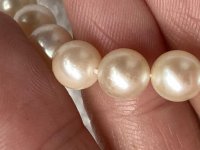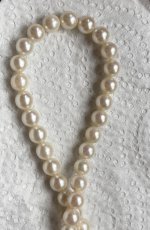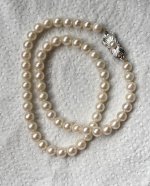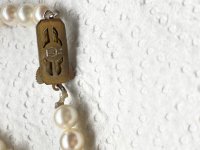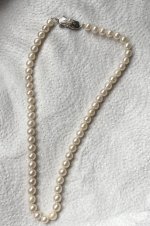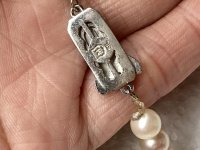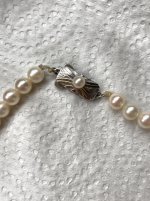With cultured diamonds being introduced to the industry just recently, it will eventually have an impact on the cultured pearls that have been in the market since the 1920s. Unlike cultured diamond, every pearl is different, it comes from a living thing with a different DNA from the next.
Isn't there a need for the pearl industry to have blockchain technology that can keep track of the source of origin, color, nacre size, and DNA? Pearls can be different from cultured diamonds because every pearl is unique, there can be a chain of custody certificate of the pearl. You are able to determine if a pearl is stolen and which farm it's coming from based on the blockchain ID. This is something unique that cultured diamonds will not be able to do.
As James Brown from Pearls of Australia puts it, "Consumers are looking for authenticity."
This is the method of DNA fingerprinting that can be implemented, and the DNA results can be searched against the blockchain to determine if it's the right pearl using PCR in gem or pearl stores: https://www.ncbi.nlm.nih.gov/pmc/articles/PMC3794040/
Isn't there a need for the pearl industry to have blockchain technology that can keep track of the source of origin, color, nacre size, and DNA? Pearls can be different from cultured diamonds because every pearl is unique, there can be a chain of custody certificate of the pearl. You are able to determine if a pearl is stolen and which farm it's coming from based on the blockchain ID. This is something unique that cultured diamonds will not be able to do.
As James Brown from Pearls of Australia puts it, "Consumers are looking for authenticity."
This is the method of DNA fingerprinting that can be implemented, and the DNA results can be searched against the blockchain to determine if it's the right pearl using PCR in gem or pearl stores: https://www.ncbi.nlm.nih.gov/pmc/articles/PMC3794040/


